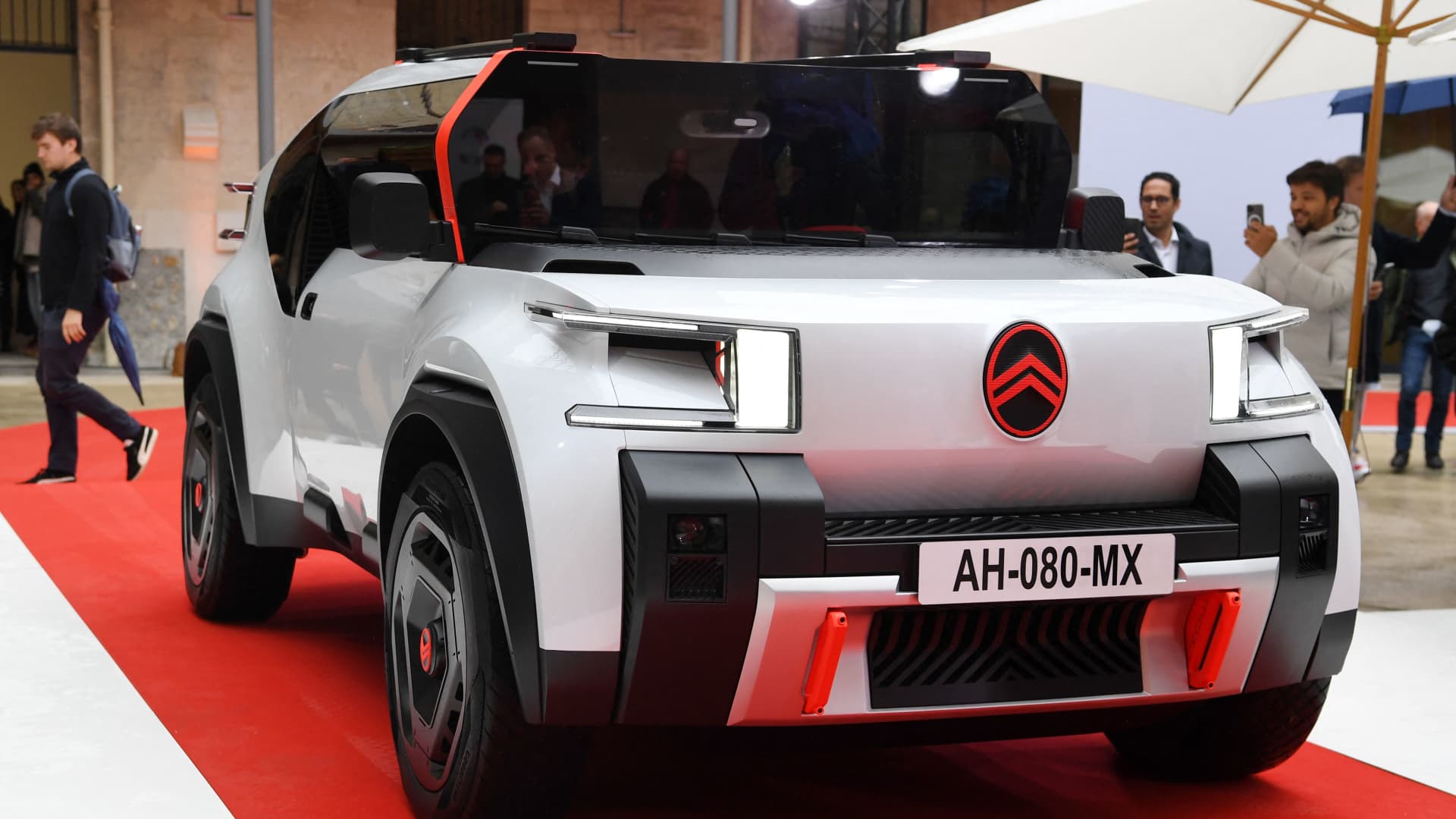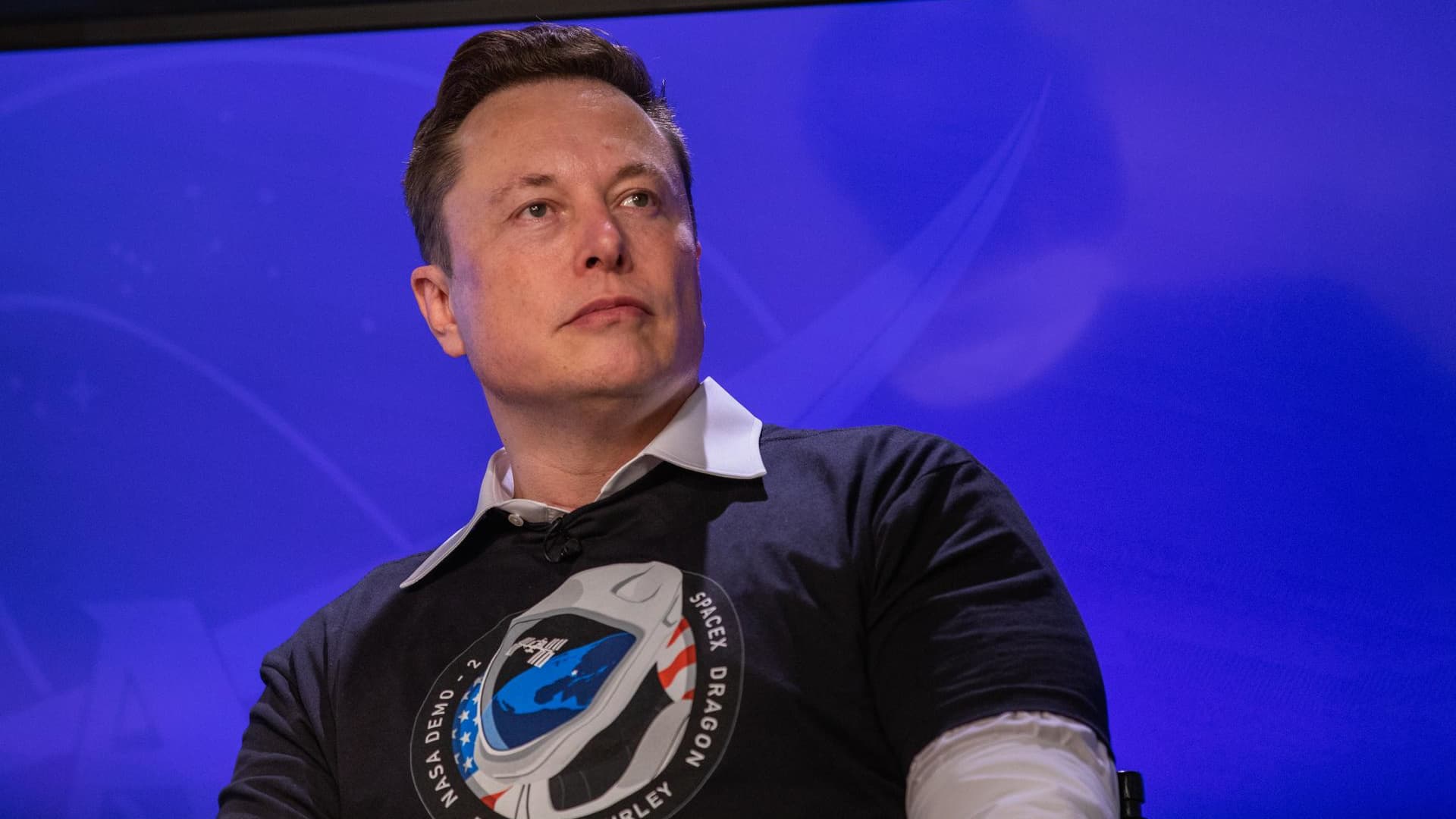Citroen announces EV concept which uses recycled cardboard and has a top speed of 68 mph
Citroen says vehicle has a target weight of roughly 1000 kilograms, or one metric ton.

Citroen's oli concept car photographed in Paris on September 29, 2022. The carmaker says it has a top speed of 68 miles per hour.
Eric Piermont | AFP | Getty Images
French automaker Citroen released details of a new electric concept vehicle Thursday, with its CEO telling CNBC that the electrification of individual transport represented an important part of a sustainable future.
In a document outlining the concept, which is called oli, Citroen said it had a target weight of roughly 1,000 kilograms, or one metric ton, and a range of as much as 248 miles.
Citroen said the oli's top speed had been limited to 68 miles per hour. The brand, which is owned by Stellantis, said "20% to 80% charging" would take 23 minutes.
The automaker added that vehicle parts could be "reused or recycled throughout ownership." According to the document providing details of the oli, it has a "flat bonnet, roof and pick-up bed panels" that are "made from re-cycled honeycomb cardboard."
The firm was keen to emphasize the vehicle's smaller scale. "Rather than being a 2,500kg 'palace on wheels' filled with screens and gadgets, oli proves that more can be achieved with less," it said.
Citroen also said that the restriction of the oli's speed to a maximum of 68 mph had been done to "maximise efficiency."
Read more about electric vehicles from CNBC Pro
Speaking to CNBC Thursday, CEO Vincent Cobée stressed the importance of electric mobility going forward, sketching out a vision of how he saw the sector developing.
"Obviously, and I think we can all agree with it, the drive towards an electrification [of] individual transport is a very important element of a sustainable future," Cobée, who was speaking to CNBC's Charlotte Reed, said.
"I'm not even talking about regulation, I'm talking mostly about societal expectations," he added. "How we get there is a very important question."
Cobée went on to emphasize the importance of broadening access to EVs. "One thing is, for the last 10 years, we've seen an increase in electric vehicle performance," he said. "I'm talking autonomy, power, speed and, as a consequence, weight and price."
"This for us is a concern because, honestly, if the future of an electric car is 2.5 tons of weight and 70,000 euros or more of price, then it's not for everyone."
With European economies facing an energy crisis and soaring prices over the coming months, there have been concerns in some quarters that the increasing cost of charging an EV will disincentivize uptake among consumers.
According to data released this week, electric car drivers in the U.K. have seen the cost of using a public, "rapid" charger on a pay-as-you-go tariff rise by 42% since May.
And speaking to CNBC earlier in September, the head of equity strategy at Saxo Bank said "the cost advantage for electric vehicles versus a gasoline car" was "fast diminishing" in Europe.
"I'm really wondering to what degree that will begin to impact sales for EVs," Peter Garnry said.
Read more about energy from CNBC Pro
Citroen's Cobée touched upon these subjects during his interview with CNBC. "There is a current concern about energy prices — rightly so," he said. "Now, I … want to make the point that those concerns might be short or mid-term only."
"Obviously, we will drive to a transition in terms of source of energy, focusing on electrification," he added.
More sustainable energy sources would be developed, he said, "and we can hope that this will maintain the price and the source of energy within affordable limits."
"So the current short term crisis has an impact on orders, as we see today for electric cars, but this is, I would say … maybe an exaggerated reaction."
"And fundamentally we can expect that within a certain timeframe energy costs will become more under control. And in any case, I don't think it will change the shift towards electrification."

 JaneWalter
JaneWalter 































